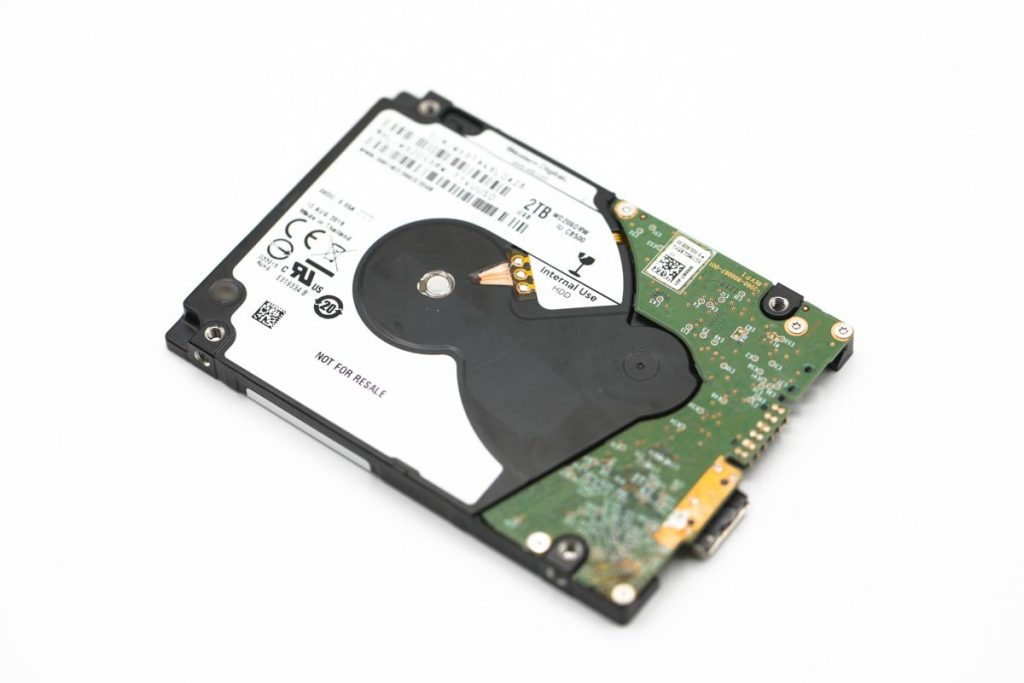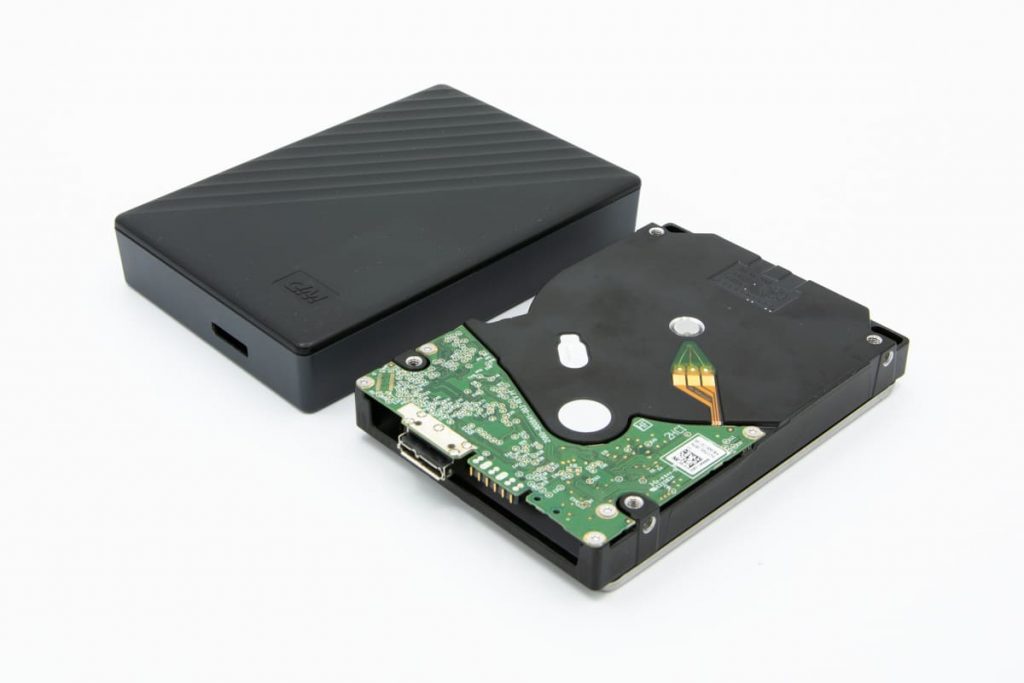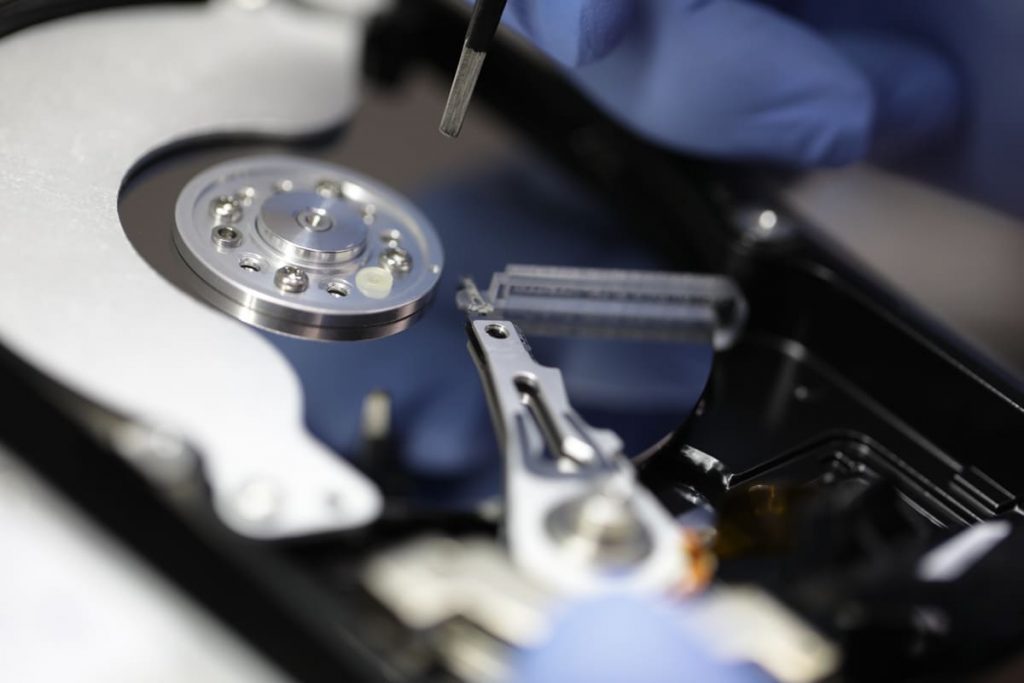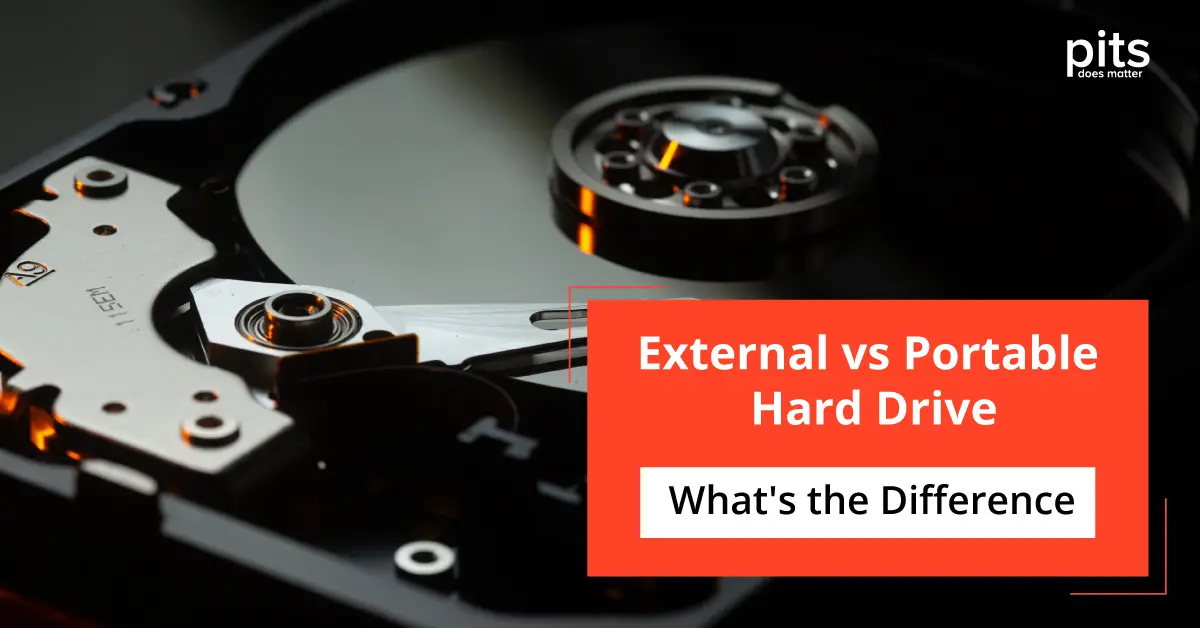The difference between portable hard drives are designed for on-the-go use, offering compact and lightweight storage solutions. On the other hand, external hard drives are typically larger and meant to remain stationary, providing additional storage capacity for desktop or laptop computers.
Both options provide distinct advantages; the decision ultimately depends on the user’s requirements and preferences. When choosing between portable and external hard drives, it is crucial to consider factors such as data transfer speeds, compatibility with various operating systems, and security features like encryption.
What is the Difference Between an External and a Portable Hard Drive?
The difference between external hard drives and portable hard drives lies in how they achieve data storage. Each type has its features, advantages, and limitations, catering to different usage scenarios.
- Size and Mobility: The key distinction between portable hard drives and external hard drives lies in their size and mobility. Portable hard drives, as the name suggests, prioritize mobility. They are typically compact and lightweight, making them an excellent option for individuals who need on-the-go access to their files.
- Capacity and Performance: External hard drives are typically larger and provide a greater storage capacity. While their size makes them less portable, they are an excellent choice for desktop or laptop users who require additional storage without frequent file movement.
- Compatibility: When deciding between portable and external hard drives, compatibility becomes a critical factor to consider. Portable hard drives generally provide universal compatibility, allowing users to use them across different operating systems without additional software or drivers.
- Security Features: Regarding security, portable and external hard drives present different options.

Portable hard drives commonly incorporate built-in encryption or password protection to ensure the safety of sensitive data during travel. Conversely, external hard drives may offer more advanced security features like fingerprint recognition or hardware encryption for enhanced data protection.
Choosing a Portable or External Drive
You must consider several important factors when selecting a portable or external drive. If mobility and ease of use are your top priorities, portable hard drives would be an excellent option. They are compact, lightweight, and do not require an external power source, rendering them highly suitable for portable use. However, if storage capacity, performance, and advanced connectivity options are crucial for you, external hard drives, particularly desktop external hard drives, may be more suitable.
Pros and Cons of External Drives
External hard drives offer numerous advantages:
- They provide ample storage capacity, making them an ideal solution for users with substantial data or large files. These drives facilitate seamless and efficient data organization while delivering reliable performance, often with faster data transfer speeds than portable options.
- Certain models feature advanced security measures, such as hardware encryption and biometric security, which ensure heightened protection for sensitive data.

Despite their numerous advantages, external hard drives also have certain drawbacks. One of the primary disadvantages is their larger size and heavier weight, which can limit portability and increase inconvenience for users who prioritize mobility. Additionally, these drives often rely on an external power source, which can be inconvenient when used on the go.
Furthermore, while they offer larger storage capacities, they tend to be more costly than portable alternatives. Lastly, specific models may have unique driver or software requirements, which can restrict compatibility and ease of use across different operating systems.
What Contrasts a Desktop External Hard Drive and a Portable One?
Desktop external hard drives are specifically designed for desktop computers, while portable ones offer more versatility and can be used with desktops and laptops. The main differences between the two include size, connectivity options, and power source. The difference between desktop external hard drives and portable hard drives is primarily based on size, connectivity options, and a power source. These drives are designed for stationary use, limiting their mobility.
The difference between desktop external hard drives and portable hard drives is primarily based on size, connectivity options, and power source. Desktop external hard drives are designed for stationary use, limiting their mobility. On the other hand, portable hard drives are designed for mobility. These devices are compact and lightweight and utilize a USB connection to the computer, eliminating the requirement for additional power sources.

Regarding connectivity, the difference between a portable hard drive and an external hard drive can be significant. Portable drives commonly utilize USB connections, whereas desktop external drives may offer supplementary connectivity options such as FireWire or eSATA, facilitating accelerated data transfer rates. Understanding the difference between portable and desktop external hard drives can greatly aid in making an informed decision. Generally, both types of hard drives have their advantages and disadvantages.
Portable and External Drive Solutions
If you often transfer data, a portable drive could be the ideal option from the diverse range of external storage available. On the other hand, if you need a larger storage capacity, an external drive would be more suitable. Your preference for performance or storage space will also determine whether HDD or SSD technology is your best choice. Ensure the security of your data, regardless of the external drive or usage situation.

Every storage device is bound to encounter operational limitations eventually. Unforeseen failures pose a significant risk of irreversible data loss. If you have ever encountered data loss, found the provided solutions insufficient, or faced unexpected failures, we highly recommend considering PITS Global Data Recovery Services. With a proven track record, PITS Global excels in successfully recovering valuable data from various storage devices.
PITS specialists are well-equipped to handle even the most intricate recovery scenarios, ensuring secure and efficient data retrieval. Rest assured, professional assistance is readily available to aid in the recovery of your crucial data.
Our dedicated service for external drive data recovery is available to assist you. Equipped with state-of-the-art facilities, specialized tools, and experienced engineers, we possess the necessary resources to handle even the most complex data loss situations caused by mechanical failures or physical damage.
Frequently Asked Questions
What are the limitations of using an external hard drive?
External hard drives are larger and heavier, which may limit portability. They also rely on an external power source and may have unique driver or software requirements, which can restrict compatibility.
What should I consider when choosing between HDD and SSD technology?
Base your decision on your performance or storage space preference. SSDs generally offer faster performance, while HDDs provide more storage capacity.
What are the disadvantages of a portable hard drive?
While portable hard drives offer convenience, it is important to note that their storage capacity is often limited in comparison to external desktop hard drives. Additionally, their mobility increases the potential for physical damage. Moreover, frequent connections and disconnections across different devices raise the risk of data corruption or loss.
What is a portable hard drive?
A portable hard drive is a compact and lightweight external storage device that utilizes USB connectivity, eliminating an external power source requirement. These devices enhance mobility and are well-suited for individuals frequently involved in data transportation. They offer convenience and flexibility in transferring data across various devices. However, it is important to note that their storage capacity may be smaller than that of external desktop hard drives.
What is the difference between desktop and portable external drives?
The main difference between desktop and portable external drives is their size and connectivity. Desktop drives are larger, about 3.5 inches, needing an external power source. They usually offer higher storage capacity and faster speeds than portable drives. Portable drives, around 2.5 inches, don’t need external power and run via USB. They have lower storage and slower speeds compared to desktop drives.
